Although Wadi Halfa seemed to be the most peaceful border town I had seen in my life, there was
nothing to do there. The baggage inspection, which took almost two days, revealed nothing. The
famous Sudanese bureaucracy also suffered from deficiency. Namely, the police station had run of
passport stickers, making them unable to register me for the ridiculous price of 40USD. I had to do it
in the next bigger town of Dongola.
“Excuse me, I am travelling on a bicycle. It is impossible for me to be there within the required period
of three days!”, I said to the officer.
“No problem. You can do it later”, he replied. And then I learned that even the Sudanese state
apparatus, notorious for it’s monstrous size, complex rules and cruelty as well, has some degree of
elasticity and humane approach. Perhaps for foreigners only.
The last adventures, unfortunately, had induced some kind of mistrust towards people in me. That is an awful feeling, especially while being in a place so famous for hospitality as Sudan is. Leaving Wadi Halfa I was set more on a desert solitude than meeting people. The circumstances supported that setting. Scorching sun made all the riverside villages look abandoned during the most of the daytime. Another reason for that were millions of tiny flies, which attacked whenever I stopped. They did not sting, but landed in thousands on my body and crawled under clothes, among hair, and – the most annoying – into the ears. Later I would be told that their appearance marks the change of the seasons. Evidently, I had entered Sudan too late. The mild winter had already became past, and hot, merciless summer was coming quickly. The time window for crossing the country was about to close, and I was perhaps one of the last cyclists going through Sudan in humane conditions.
The wind was strong and blew the right direction. A huge distance of 950km to Khartoum I covered in only seven days of cycling and one day of rest in Dongola, mostly because of the paperwork at the police station.
Definitely I just skimmed the surface of the lovely place which Northern Kordofan seems to be. I did not go to Jebel Barkal or Meroe, cutting the shortest way to the capital. Well, at least there is an excuse to visit Sudan again.
My day on the desert would begin with the sunrise and finish with the sunset, broken in between for a stop at roadside cafeteria. The head of the midday was too much to cope with and the most pleasant thing to do was just to sip a tea and sleep on cafeteria’s bed or any other shaded surface. The locals acted the same way, limiting their noon activity to the absolute minimum.
The good old nights spent under the stars had ended. With the river nearby and the southern edge of Sahara being closer, I began to meet strange fauna. A snake killed by a car and a huge spider crossing the road were clear signs that I should protect myself, and after a month of break I started to pitch the tent again.
Although the travel through Sudan is now way easier than it had been just a few years before, due to the perfectly flat Chinese-made road, my bike suffered a serious failure. One of the rear eyelets supporting the rack broke off the frame. Having it secured temporarily by plastic zips, for the first time I was really happy to have a steel frame. Khartoum car mechanics would certainly help me fixing it.
Many travelers had warned me that enjoying Sudan depends heavily on one’s attitude to the fuul. That meal made of broad beans, very popular in Egypt, in Sudan often becomes the only choice. Fortunately I just love that dish and must say that here it became even more tasty. The downside, however, is the difficulty of getting fresh vegetables in reasonable prices. Tomatoes got ridiculously expensive and occasional lettuce was not enough. I was happy to see bananas – the cyclist’s best friends – to be cheap, and in one of the villages I grinned widely after spotting a watermelons vendor. These fruits are just perfect for rough desert conditions, while access to good water is limited.
The concept of bottled water is very unpopular in northern Sudan. The most common source of fluids are roadside shelters with big clay pots periodically refilled with water. It slowly seeps through the porous pot, just to evaporate in strong, dry wind. This process, a brilliant imitation of the sweating mechanism, keeps the water cool even though the air temperature often exceeds 40°C. However, a communal pot, accompanied with a mug, is perfect place to exchange germs. I was very happy to have a water filter, and the fact that it often clogged up with gray-greyish slime might be the best evidence of the water quality. With the consumption of at least 5 liters per day I guess I have dodged a broad palette of infections.
On the last two hundred kilometers before Omdurman the landscape begins to change. The sand is more and more often dotted by acacia trees, which give food to camels and goats, and for the first time in months I could see villages situated away from either the river or an oasis. That was a clear sign: I had crossed Sahara. The biggest desert of the world surrounded me for a month and a half. It’s edge and the city of Khartoum were a new world to me. Never in my life I had ventured so far south.

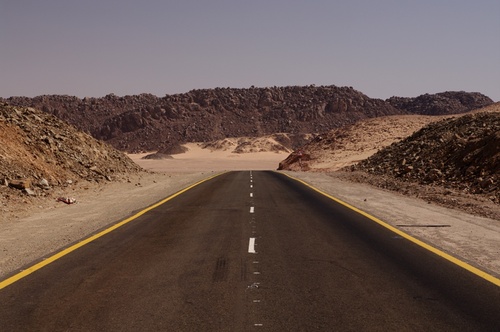
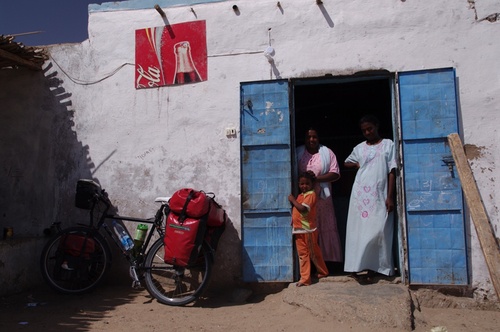
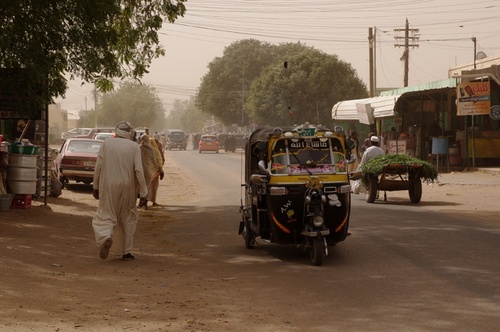
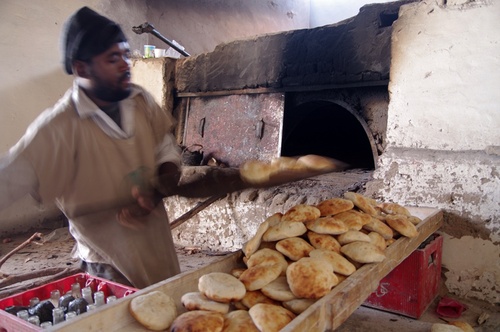
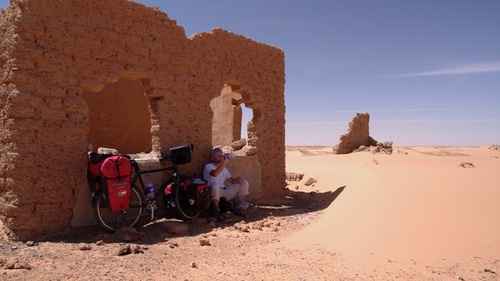
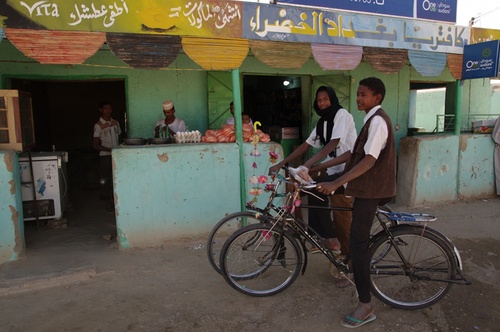
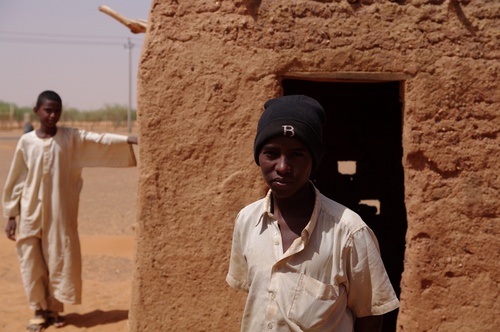
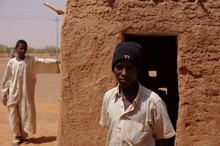
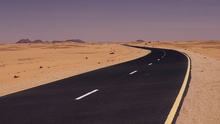
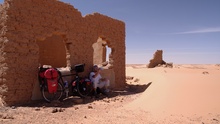
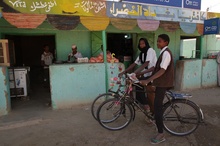
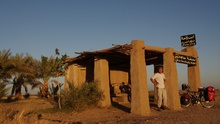
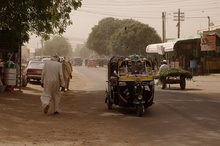
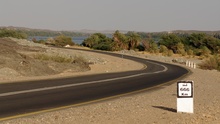
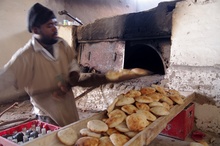
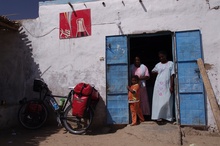
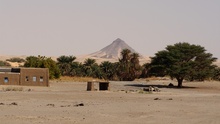
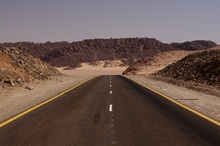
Comments:
hydek
mama